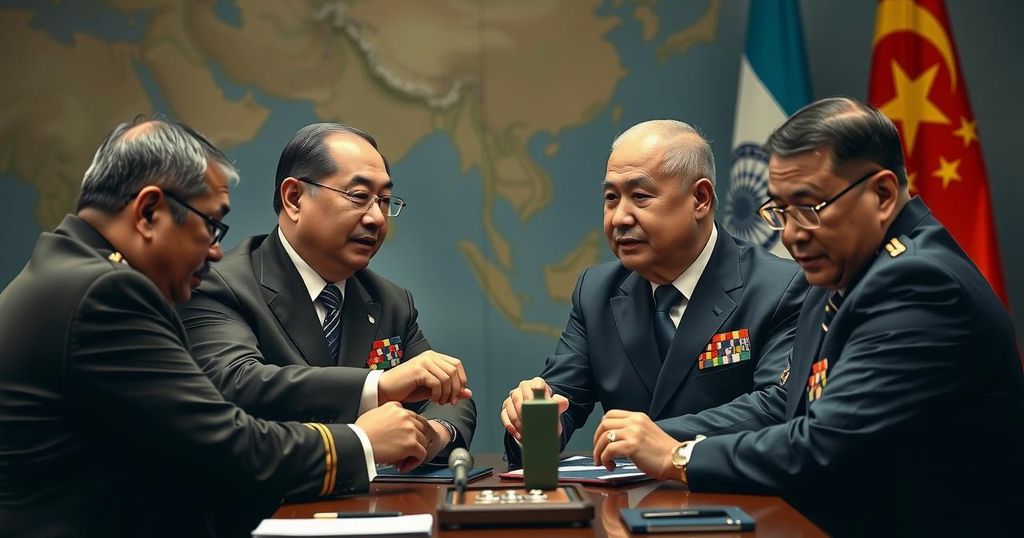Kyrgyzstan and Tajikistan Finalize Border Agreement, Ending Longstanding Disputes
Kyrgyzstan and Tajikistan have reached a border demarcation agreement concerning their final disputed frontier, potentially concluding decades of territorial disputes. The agreement follows recent border clashes, particularly a violent conflict in September 2022. The deal signifies a thaw in relations and reflects broader geopolitical changes in Central Asia.
On Wednesday, Kyrgyzstan and Tajikistan finalized a border demarcation agreement concerning the last disputed area along their shared frontier. This resolution marks a significant step towards ending a longstanding territorial conflict that has marred relations between these Central Asian neighbours since the collapse of the Soviet Union. The 970-kilometre border, which has been the site of violent skirmishes due to competition over water and resources, was effectively delineated following discussions between the heads of the respective national security agencies.
The agreement resulted from a meeting held in the Kyrgyz city of Batken, where officials reportedly fostered an atmosphere of friendship and mutual understanding. The previous clashes, particularly a devastating conflict in September 2022 that resulted in approximately 100 casualties, underscored the urgency for resolution. In reaching this agreement, both nations are moving towards greater stability amidst a backdrop of evolving relations between Central Asian countries.
The source of the dispute resides in the arbitrary borders drawn during Soviet times, which contributed to significant tension post-1991. The struggle over water access, compounded by the pressing realities of climate change impacting water availability, has exacerbated local conflicts. The cordial dialogue between Kyrgyz President Sadyr Japarov and Tajik President Emomali Rakhmon indicates a renewed commitment to improving ties, with discussions on border matters taking place at international forums.
Despite the absence of support from Russia amid its ongoing conflicts in Ukraine, regional influences from China, Turkey, and the European Union are growing as they recognize opportunities in Central Asia. The challenges in negotiating these territorial agreements were heightened by the lack of access to archival maps from the Soviet era, which clarify border lines. Although historical grievances persist, the recent agreement represents a triumph of diplomacy over conflict, with hopes for improved bilateral relations moving forward.
The relationship between Kyrgyzstan and Tajikistan has been historically fraught with tension due to territorial disputes stemming from the arbitrary administrative boundaries established during the Soviet Union’s existence. Following the dissolution of the USSR in 1991, these unresolved border issues escalated into several violent confrontations, particularly over critical resources such as water, essential for survival in the drought-prone region. The geopolitical landscape in Central Asia has been reshaped by the influence of external powers such as Russia, China, and Turkey, who are jockeying for greater leadership and connection in the area.
In conclusion, the border demarcation deal reached between Kyrgyzstan and Tajikistan is a pivotal development indicative of an attempt to foster peace and cooperation in a historically contentious region. Overcoming a legacy of conflicts initiated by Soviet-era delineations, the agreement signals a potential new era of bilateral relations. However, it also reflects the broader dynamics of regional politics amidst shifting allegiances and the diminishing influence of Russia.
Original Source: 24newshd.tv




Post Comment